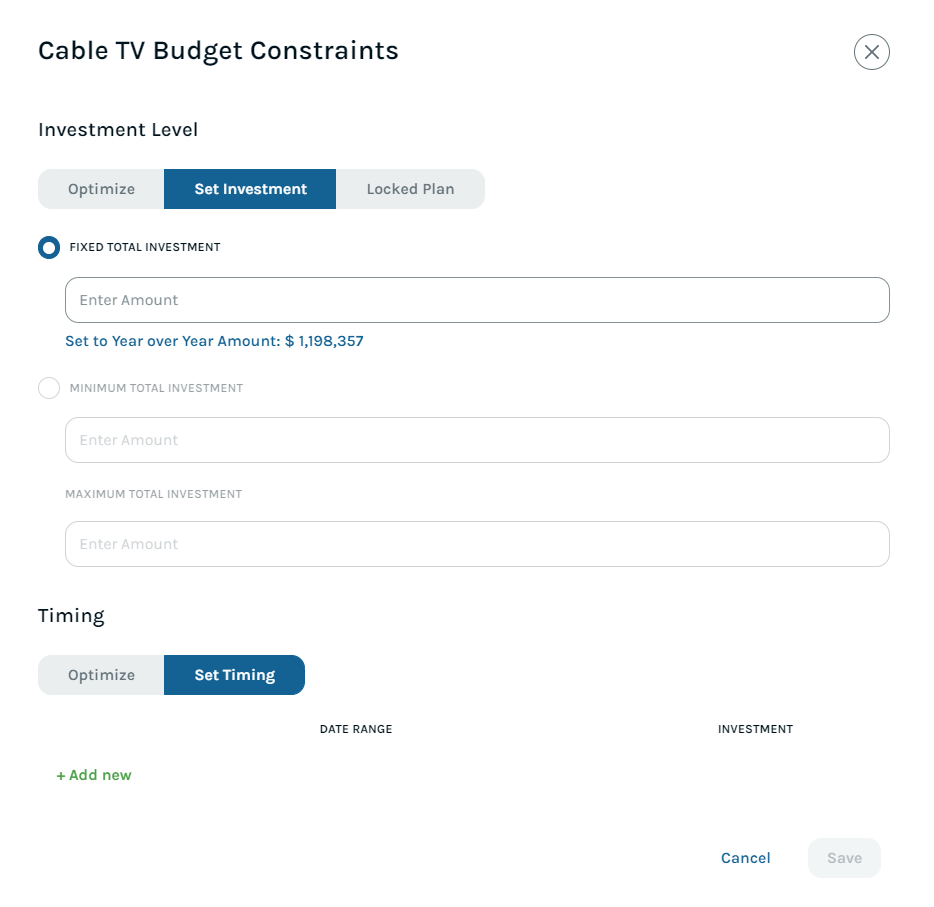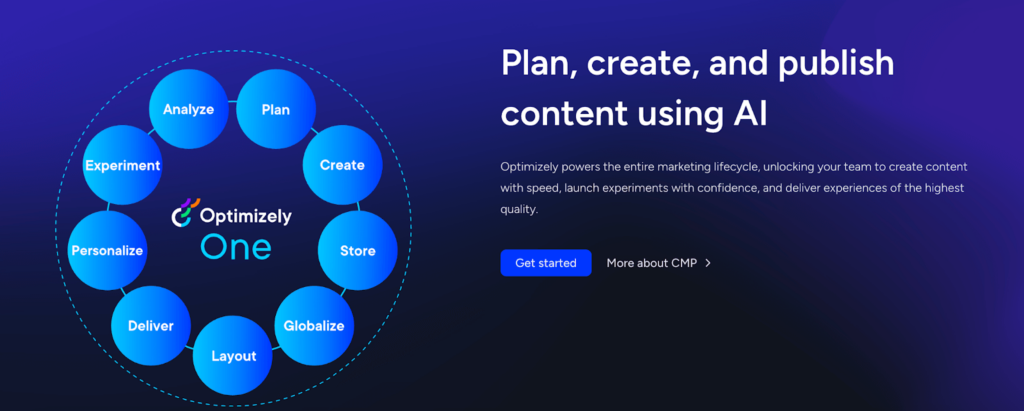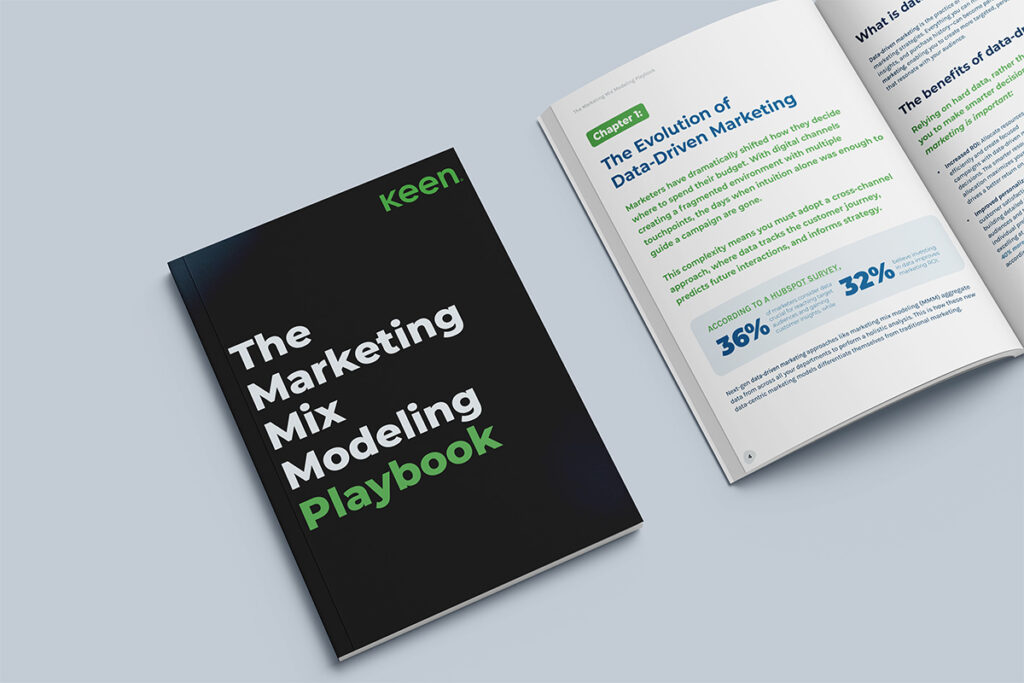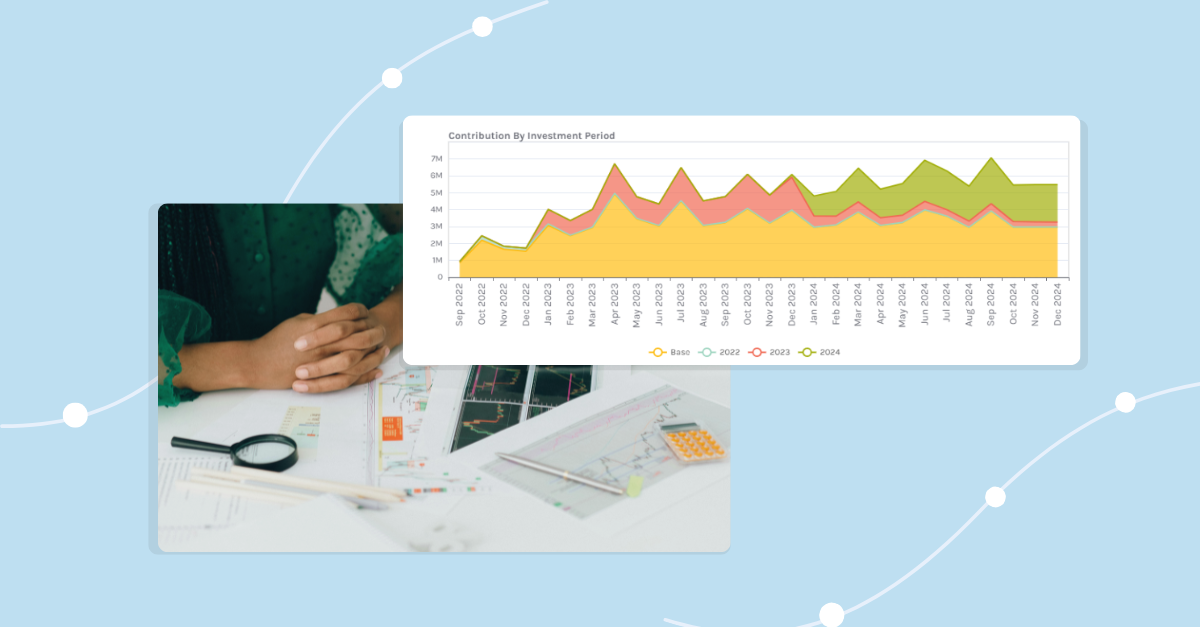Marketing optimization software isn’t just a nice-to-have tool. It keeps the finance team off your back, saves your data team hours, and gives the sales team what they really want—better leads.
The right optimization platform shows you what marketing strategies are working (and what’s not) and where your next dollar will make the biggest impact.
Key highlights:
- Marketing optimization software helps you make informed decisions regarding your budget by centralizing your data and analyzing your current performance.
- Marketing mix optimization software identifies which channels and campaigns drive better business outcomes, recommends budget shifts, and runs predictive scenarios to improve ROI.
- Key features to look for in the software include AI-driven insights, cross-channel optimization, media mix modeling, and easy integration with your existing tools.
- Choose the marketing performance optimization software that aligns with your goals, integrates with your tech stack, is easy to use, and can scale as you grow.
What is marketing optimization?
Marketing optimization is the process of using data to improve your performance results. It works by gathering and analyzing your cross-channel data to make data-driven marketing decisions about where to invest next for maximum impact.
The problem: marketers still struggle to turn data into action. According to a Gartner survey, marketing analytics influence only 53% of decisions because data is:
- Scattered across platforms
- Hard to access and trust
- Cherry-picked by some team to fit their story
This is where marketing optimization software changes the game. It automates the heavy lifting—analyzing vast amounts of data, identifying trends, and suggesting (or even automating) the next best actions.
Benefits of marketing mix optimization software
A good marketing mix optimization software helps you with:
1. Centralizing your data in one place
Integrate marketing data scattered across different platforms into one dashboard. Include data from email campaigns, content marketing, search engine optimization (SEO), and every other marketing channel.
The centralized location will give you a clear, real-time view of what’s happening across all your campaigns—without digging through multiple reports or Excel sheets. For example, this is how data warehousing looks like on Keen’s marketing mix optimization platform:

2. Identifying the best marketing strategies
Once your data is in one place, a marketing optimization platform will help analyze your performance across channels and campaigns. It will show you where your marketing strategies are getting the best return and where your budget is being wasted.
3. Optimizing marketing spend
Using AI and machine learning, digital marketing optimization software recommends where to shift the budget for better performance. Some tools, like Keen, even automate the marketing spend optimization in real time.

And this optimization pays off. In 2024, Keen’s clients increased marketing investments by 15% and saw a 4% increase in ROI, proving that data-driven optimization delivers real business impact.
4. Using predictive analytics in marketing
Want to know what would happen if you increased your budget by 20%? Or if you shifted spend to a new channel?
Marketing optimization solutions leverage predictive analytics to run forecasts and “what-if” scenarios so you can test strategies before committing real dollars.
5. Proving ROI and incremental lift
Good optimization software tracks the incremental impact on conversion rates of each channel and campaign, helping you demonstrate marketing ROI to leadership.
Key features to look for in marketing investment optimization software
Not all platforms are built the same. Here’s a selection checklist for choosing your marketing investment optimization software:
1. Unified cross-channel data ingestion
You need software that can automatically gather granular performance data from different types of marketing strategy software, including:
- Major ad platforms (Google Ads, Meta, LinkedIn, TikTok)
- CRM (like Salesforce or HubSpot)
- Web analytics (GA4)
- Offline channels (TV, radio, direct mail)
Bonus points if it can also handle cost data ingestion through APIs or SFTP for channels without native integrations.
For example, Keen integrates with over 275 tools.
2. Forecasting performance with confidence intervals
Forecasting shouldn’t be a black box. Look for tools that offer media mix modeling or Bayesian MMM that show not just the projected results but the confidence intervals—so you can assess risk before reallocating budgets.
You want forward-looking ROI estimates, not just curve-fitted trend lines.
And if you think MMM is only for large enterprises—think again. Over half (53.5%) of U.S. marketers are already using MMM, according to eMarketer. It’s no longer optional—it’s expected.
Read more: MMM vs MTA: What’s the difference?
3. Scenario-based planning that updates in real time
You should be able to model scenarios like “What happens if we shift $100K of our marketing budget from paid search to TikTok?” and get a real-time performance projection based on current campaign dynamics—not historical averages from last year.
The best tools make this a core feature, not a spreadsheet export.
Read more: Introduction to scenario-based marketing planning
4. Algorithmic and customizable attribution models
Platform marketing attribution (last-touch, linear) is biased and can’t work accurately at the strategic level.
Look for software that supports data-driven attribution of your customer journey. More importantly, it should let you tweak model assumptions based on your funnel length, sales cycle, and touchpoint logic.
5. Integration with business intelligence (BI) tools
If the marketing optimization platform can’t work with your data warehouse or business intelligence (BI) stack, your data analysis team will spend more time fixing pipelines than interpreting insights.
So, if your data lives in Snowflake, your optimization tool should plug in directly without any CSV exports or data lag.
6. Real-time performance alerts
Performance alerts are useless if they just say, “Spend dropped on Facebook.” You want alerts tied to KPIs and thresholds you define: “Spend dropped by 20% on Facebook, causing a projected loss of 150 leads this week.”
Actionable, contextual alerts help you stay ahead of performance issues, not react after the fact.
7. Prompt customer support and vendor reliability
The software you choose should provide support until your team becomes familiar with the product. Onboarding, training, and a low response time are great-to-haves.
Important: if your campaigns are time-sensitive, you’ll need a fast escalation path for support (under 24 hours).
8. Transparent data modeling methodology
Any tool using AI, MMM, or optimization algorithms should be able to discuss how the math works:
- What marketing mix variables are being used?
- What’s the R² of the model?
- Are you seeing marginal returns or averages?
The marketing optimization solution can’t be trustworthy if the platform doesn’t explain how it reaches conclusions.
Read more: Eight reasons to trust the Keen platform
Common mistakes to avoid when choosing marketing performance optimization software
When picking your digital marketing optimization tools, don’t:
- Chase the hype: Don’t buy into AI buzzwords unless they add value.
- Ignore integrations: A great tool that doesn’t fit your tech stack won’t be of much use.
- Skip stakeholder buy-in: Involve everyone who’ll use (or be impacted by) the platform.
- Prioritize price over value: Affordable software that doesn’t deliver will cost you more in the long run.
Top marketing optimization platforms to consider
To get you started, here are four AI-powered marketing tools and who they’re best suited for:
1. Keen
Keen is an AI-driven media mix modeling platform providing causality along with other optimization details.

- Best for: Marketers who need to prove incrementality and forecast iROAS with precision.
- Our take: Perfect for data-driven marketing teams serious about scaling efficiently. Not for teams looking for basic dashboards.
2. Optimizely
Optimizely helps you with content and digital marketing experimentation and personalization at scale.

- Best for: Teams focused on A/B testing with CRO as their business goal.
- Heads-up: It’s not a media mix tool—it’s limited to content, website, and product optimization.
3. HubSpot Marketing Hub
HubSpot Marketing Hub is an AI-powered easy-to-use marketing automation with built-in analytics.

- Best for: SMBs that need a unified CRM and marketing platform.
- Limit: Not designed for heavy media mix modeling or offline attribution.
4. Salesforce Marketing Cloud Intelligence (Datorama)
Salesforce Marketing Cloud Intelligence gives you comprehensive cross-channel data aggregation and reporting.

- Best for: Teams already using Salesforce, needing unified data visibility.
- Consider: Lengthy setup time and ongoing maintenance.
Fuel your optimization and marketing with Keen
The marketing optimization software you choose today shouldn’t box you in tomorrow. Make sure you keep the human element in your strategies, revisit your channel performance metrics, and focus on data quality.
Start by assessing where your optimization strategy needs the most help. From there, choose a tool that fits your goals, data, and budget.
Request a demo to see if our marketing mix optimization software fits your needs.





